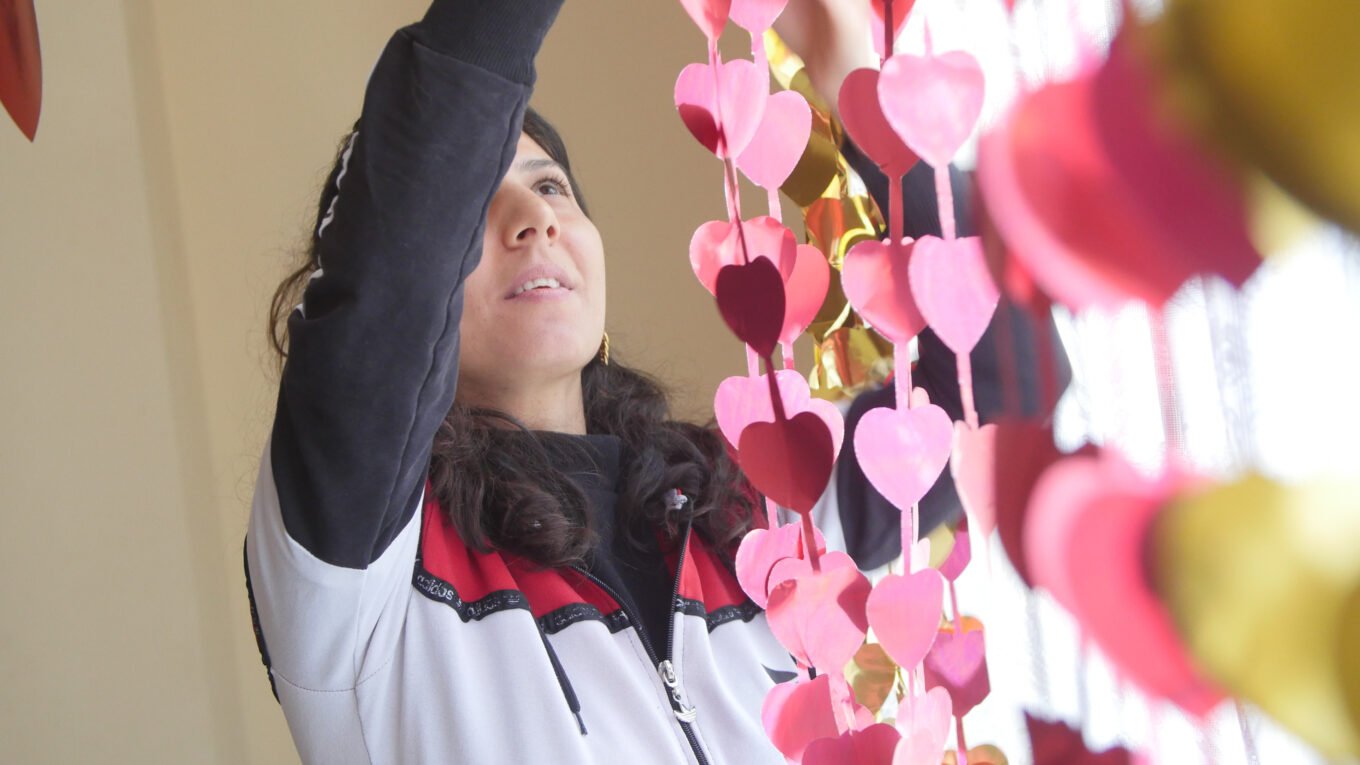By Claire Roberts Lamont, UNHCR city focal point, multi-stakeholder partnerships

With global forced displacement being driven to record levels by unresolved and new conflicts, climate change, and compounding food, energy, and cost of living crises, the role of local authorities as frontline responders in an increasingly urbanized world has become more critical than ever.
Mayors and local authorities recognize that while refugees may have entered cities seeking protection, improvements in their situation over time make it possible for them to achieve successes like any other city resident. By promoting social cohesion through progressive policies around housing, work and employment, cities can empower all residents to feel like they belong in their local communities.
Refugees often prefer to live in cities for the same reasons the rest of us do. They offer greater choices and more opportunities to find work and build new social networks.
So, what are cities doing worldwide to make themselves refugee-friendly?
Here are five ways in which cities are proactively working to ensure that those who come seeking safety are made to feel included — delivering benefits for all.
- Involving refugees in decision-making.
Cities that design, plan, and implement initiatives together with refugees and affected communities gain greater insight into the support structures that refugee residents need. Arua, Uganda; Izmir, Turkey; Sao Paolo, Brazil; and Larissa, Greece, have set up formal mechanisms to involve refugees in their municipal councils to help them co-design initiatives that impact their lives in collaboration with local authorities.
- Cutting unnecessary red tape
Cities are working hard to remove burdensome documentation requirements and other administrative barriers so refugees can access services. Some municipal services have rules and conditions that newcomers cannot meet, such as providing a utility bill or documentation. Municipalities issue temporary documentation or train frontline municipal staff to waive requirements so that refugees can receive essential services. Cities have set up social protection desks or one-stop access points in Brasov, Romania; Ioannina, Greece; Istanbul, Turkey; and Barranquilla, Colombia.
- Proactively addressing housing issues
In many refugee-hosting cities, the availability of adequate housing is a significant challenge for refugees and local residents alike. Cities are innovating to expand their existing housing programmes. Kielce, Poland, is renovating 14 municipally-owned apartments to make them available to refugees from Ukraine. Albuquerque in the U.S., for example, has developed the “Rent to a Refugee” programme that provides training to local landlords to raise awareness about temporary support. Medellín, Colombia, has expanded its Línea 123 Social, Auxilio Habitacional transitorio (Transitional Housing Assistance), to include migrants and refugees. Municipalities in Greece have a similar programme to provide links between refugees and landlords. Tübingen & Berlin in Germany have set up housing cooperatives that offer homes to refugees and host communities.
- Considering specific needs
Many local authorities understand that refugees are a diverse group, and take steps to ensure they can access support for their specific needs in all phases of service provision. Diversity can include, for example, unaccompanied and separated children, victims of trafficking, people with disabilities, members of the LGBTIQ+ community, older people, the homeless, women at risk, and those with mental and physical health conditions. Cities are expanding their existing programmes so refugees with specific needs can access mainstream programmes—acknowledging that they might need extra support. Bergen in Norway, for example, recently became a ‘Rainbow City,’ identifying itself as a safe city for LGBTI+ refugees and migrants. The Family, Women Support and Disabled People Centre (AKDEM) in Zeytinburnu Municipality, Turkey, has an outreach programme to support refugees with disabilities. Lublin, Poland, has extended assistance from the Information Center for Persons with Disabilities to refugees, where they can find comprehensive information and advice on disability issues.
- Making sure refugees are supported to find work
Municipalities offer language training, jobs, and livelihood programmes that familiarize refugees with small business regulations in Ankara, Sanliurfa & Gaziantep, Turkey, and Neapoli, Karditsa & Tilos, Greece. Refugees and migrants are trained in waste management in Accra, Ghana, and Freetown, Sierra Leone. Monrovia, Liberia, is training migrant and internally displaced youth to become tree stewards responsible for establishing green corridors. Municipalities are promoting economic inclusion, especially for female entrepreneurs, in Barranquilla, Colombia; Dannieh, Lebanon; Montreal, Canada; Sultangazi, Şişli, and Gaziantep in Turkey; Kobobo, Uganda and Haho, Togo.
Such initiatives also make economic sense. Cities that have embraced their newest residents are stronger for it. Refugees are teachers, shop owners, and health care workers – and are our neighbours – they want to contribute to the communities that welcome them.
We need to better support cities on the front line of refugee responses. Cities that are supported to plan beyond the reception of refugeescan ensure that the initiatives that benefit refugees and host communities in the short term will also deliver longer term. This long-term thinking and planning require better and more consistent resourcing.
Current pledges to implement the Global Compact on Refugees (GCR) and the inclusive policies adopted worldwide demonstrate cities’ individual and collective commitment to supporting refugees. Find out more about how cities worldwide are working to implement the GCR here.
